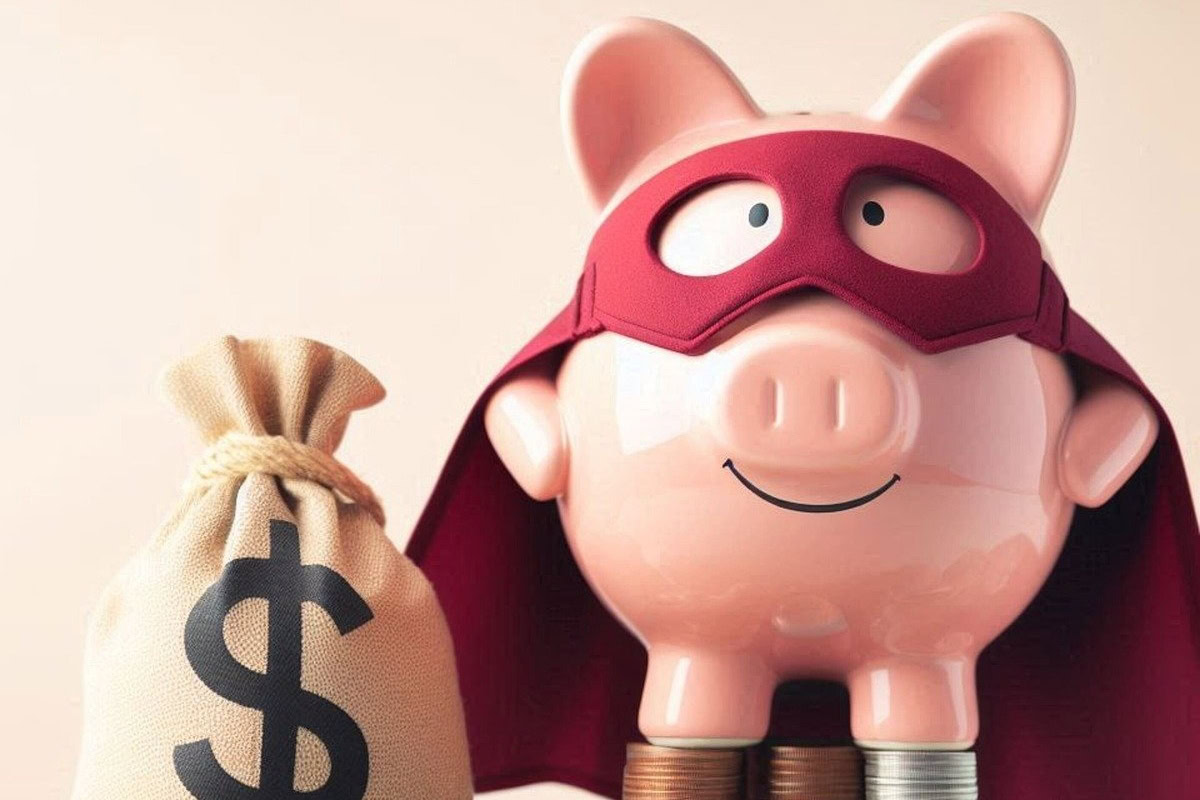Best High-Yield Online Savings Accounts: 4.80% APY (November 2024)


The best savings accounts offer high-yield interest rates and don’t require you to maintain a huge minimum balance (or any balance whatsoever) to avoid fees.
If you are using a brick-and-mortar bank as your savings account, you need to switch. They don’t pay anything. And the banks on this list pay many many times that.
Below is a list of online savings accounts with the highest interest rates. They are all FDIC-insured. They are as safe as a ‘regular’ bank except they pay way more interest. You can confirm that by searching the FDIC’s Bank Find tool and confirming the FDIC numbers listed.
Updated November 2024: Updated with current interest rates and re-ordered the list to reflect the new rates.
The content on this page is accurate as of the posting date; however, some of the offers mentioned may have expired or changed.
Barclays is a British-based international banking corporation. The online bank is part of its US subsidiary, Barclays Bank, located in Delaware (FDIC #57203).
Their online savings account product has a competitive interest rate of up to up to 4.80% APY (with minimum balance requirements), no minimum balance to open. While you have to have $250,000 to earn the top rate, lower balances earn a healthy 4.50% APY.
Barclay’s also has a competitive lineup of Certificates of Deposits with terms as short as 3 months and up to 60 months. The rates are competitive with other online banks.
Barclays offers savings and CDs but does not offer a checking account.
Here’s our full review of Barclays Bank for more information.
CIT Bank has two interesting savings accounts, the Platinum Savings and the Savings Connect account. The Platinum Savings has a $100 minimum opening deposit requirement and earns 4.70% APY as long as the balance is above $5,000, otherwise the APY is quite low.
The Savings Connect account earns 4.35% APY on all balances and also requires a $100 minimum deposit to open the account.
There are no monthly fees on either account.
CIT Bank is the online division of First-Citizens Bank & Trust Company (FDIC #11063) and offers several deposit accounts, including money market accounts and no-penalty CDs.
Here’s our full review of CIT Bank for more information.
Quontic Bank has a high-yield savings that earns 4.00% APY with no monthly fee. There is a $100 minimum deposit requirement to open the account.
Quontic also has a high-interest checking. It earns 1.10% APY if you make at least 10 qualifying transactions per statement. This account also has a $100 minimum deposit requirement.
The bank also has competitive CDs and a fantastic money market account that earns 4.75% APY.
At 4.10% APY, Marcus currently has some of the highest interest rates for savings accounts, and they have no minimum deposits and no monthly fees.
It is only a savings account though, no associated checking available, although they do have CDs.
Marcus by Goldman Sachs (FDIC #33124) is the online bank of Goldman Sachs, most well known as an investment banking firm. They do quite more than that and Marcus by Goldman Sachs handles their online bank offerings.
Here’s our full ull review of Marcus by Goldman Sachs for more information.
Discover® Bank’s Online Savings account earns 3.90% APY with no monthly fees for minimum balance requirements.
It also has a checking account also with no minimum balance, access to over 60,000 ATMs in the ATM network, plus a generous reward structure. You can earn 1% cash back on up to $3,000 in debit card purchases each month, pay a bill online, or write a check that clears (up to 100 such cashback transactions a month).
This is the first bank on the list that offers all three deposit products – checking, savings, and CDs. In terms of convenience, it’s one of the best.
Sometimes, Discover Bank will offer a cash bonus for this account. This Discover Bank promotion page will list any offers we know about.
Discover® Bank (FDIC #5649) may not be a familiar name, but it has been actively insured by the FDIC since 1934.
Here is our full review of Discover Online Savings Bank for more information.
American Express® Personal Savings is a high-yield savings account that earns 4.00% APY with no monthly fees or minimum balances. Amex also has certificates of deposit as well but they do not have a checking account.
You are probably more familiar with their credit cards than their savings account but American Express National Bank (FDIC #27471) has been in business since 2000, when American Express sold their previous banking division to Standard Chartered.
Here’s our full review of American Express Personal Savings.
Ally Bank (FDIC #57803) is the online bank I use, and I’ve been a fan for years. I opened my account shortly after they rebranded from GMAC (General Motors Acceptance Corporation) in the late 2000s.
Their savings account earns 4.00% APY, with no maintenance fees, and no minimum balance.
Their CD rates are also competitive, the early termination period is only 60 days on a short-term CD (versus the more typical 90 days), and they often give you an interest rate bonus if you roll your maturing CD into a new one.
They also offer a free checking account with no minimum balance, they refund up to $10 in ATM fees each statement, have a large ATM network, and they have a competitive interest rate on the checking account too.
Their app is solid too. It has all of the typical bells and whistles plus a great remote deposit feature for when you have checks to deposit. If you need to deposit checks and don’t want to use the app, there are postage-paid deposit envelopes for you to use too (absolutely free).
Finally, they also offer an integrated brokerage accounted called Ally Invest. This gives you access to a low-cost stock broker too that offers free stock trades too.
Here’s our full Ally Bank review for more information.
The first thing to consider when shopping for a high-yield savings account are the monthly fees. It’s going to be difficult to earn enough in interest to make up for any monthly fee.
Next, you’ll want to make note of the interest rate. The higher, the better!
Lastly, you’ll want to consider convenience. If you want a high-yield savings account, you will likely end up with an online-only account. If you already have accounts with an online bank, perhaps start there. If your current bank offers competitive rates, that will probably be the easiest way to go.
Online savings accounts are pretty easy to manage; you’ll just need to connect your checking, and then you’ll make transfers online. Transfers typically take two or three days, sometimes quicker.
Yes, 100% safe. Online banks are FDIC insured and so your money is as safe in those banks as they would be in a traditional bank. Your funds are protected up to $250,000 by the FDIC. If the bank fails, the FDIC will get you your money back.
As for protection against fraud, they often have security precautions in place to prevent many of the different types of fraud. Many banks offer two-factor authentication, to confirm your identity, as well as plenty of notifications. You can set up your bank to notify you every time there is a transaction, a service not many banks offer.
If online savings accounts are just like those without physical locations. So, what’s the benefit of an online savings account? They have much higher interest rates. If you ever look at the interest rate of a regular bank, it’s usually ridiculously low.
For example, as of this writing, the interest rate at Bank of America’s savings account is 0.01% APY. It’s basically zero and it has been for a long time. Ally Bank’s interest rate is 4.00% APY.
Online banks tend to have much lower fees too. Ally Bank doesn’t have a maintenance fee and no minimum balance. Bank of America’s Core Checking has a $12 monthly fee that is waived if you maintain a balance of $1,500 or have a qualifying direct deposit of $250+.
Online savings accounts are just like regular savings accounts. The big difference is that many banks offering online savings accounts don’t have physical locations you can visit. Your main point of contact is through an app or online banking.
Many banks also offer online checking accounts that work just like regular checking accounts. The app usually lets you deposit checks by taking a picture of the front and back. You can access your money through a regular ATM, and many banks have partnerships with national ATM networks like Allpoint.
Money market accounts are a hybrid between checking and savings. They often earn interest rates similar to savings accounts but offer easier access to your money. Some money market accounts come with checks and debit cards for easy access, but not all, so double-check the features before you open an account.
My favorite money market account is Quontic’s. It earns 4.75% APY. There are no transaction limits and it comes with a debit card and checks.
Here are some of our other favorite money market accounts.
If you are saving for the long term and want a fixed interest rate then you’ll wan to look into CDs.
With CDs, you have to set aside the money for a set number of months or years, and in return, you’ll receive a fixed interest rate. The drawback is that if you need your money before the term is up, you’ll likely pay an early withdrawal penalty.
Here are a few questions I get asked a lot when it comes to these online savings accounts.
There is no limit to how many savings accounts you can have but you will receive a Form 1099-INT from every bank that pays you more than $10 in interest. You may not want to deal with so many forms when it comes time to do your taxes!
A high-yield savings account will offer a much higher interest rate but will likely be an online-only account. Traditional savings accounts, however, will be with a bank that has physical locations, but will offer very low rates.
Interest rates don’t change on a set schedule. Instead, they are set by several factors, including the interest rate set by the Federal Reserve. Rates can change quickly, or stay stable for months. It depends on what is going on with the economy and marketplace.
Interest rates on savings accounts are variable. If you are looking for fixed rates, consider CDs.
Yes, you do have to pay income taxes on the interest you earn. If you earn over $10 you’ll receive form 1099-INT from the bank letting you know how much you earned for the year.

Blog Posts Archives UnfavoriteFavorite March 4, 2026 Religion & Society Program by Rabbi Elan Babchuck A guest blog post published...

The senior housing sector represents one of the most compelling opportunities in commercial real estate today. Here’s a staggering statistic:...

When money is tight and bills can’t wait, many people look for ways to access cash quickly. One option that often comes up is a...